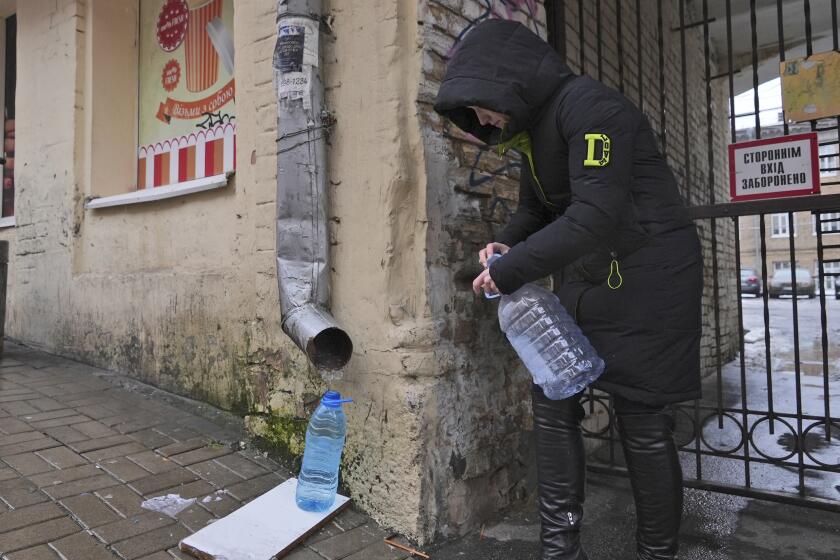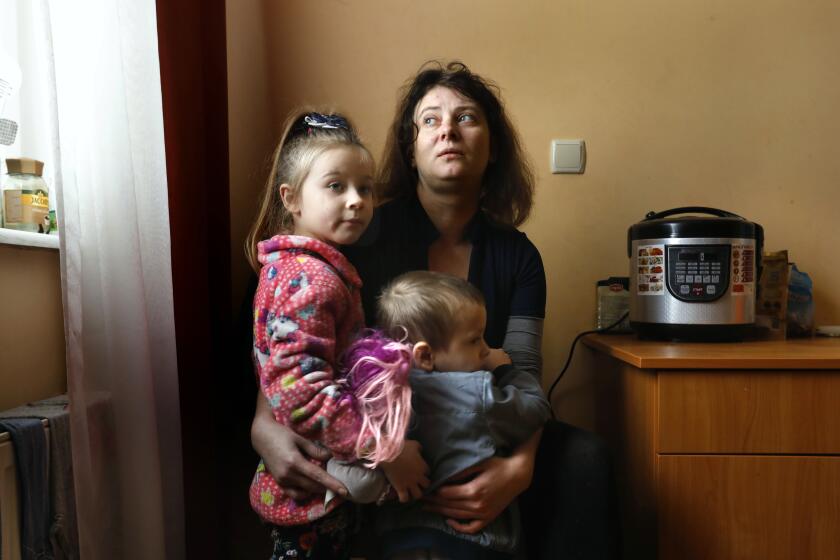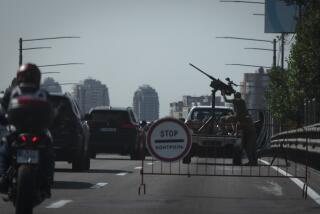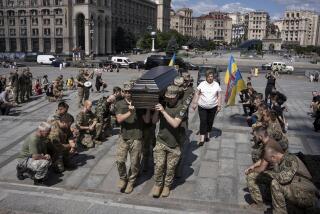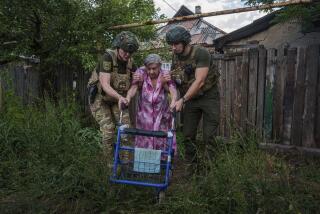Russian artillery rains down across Ukraine as wintry warfare looms
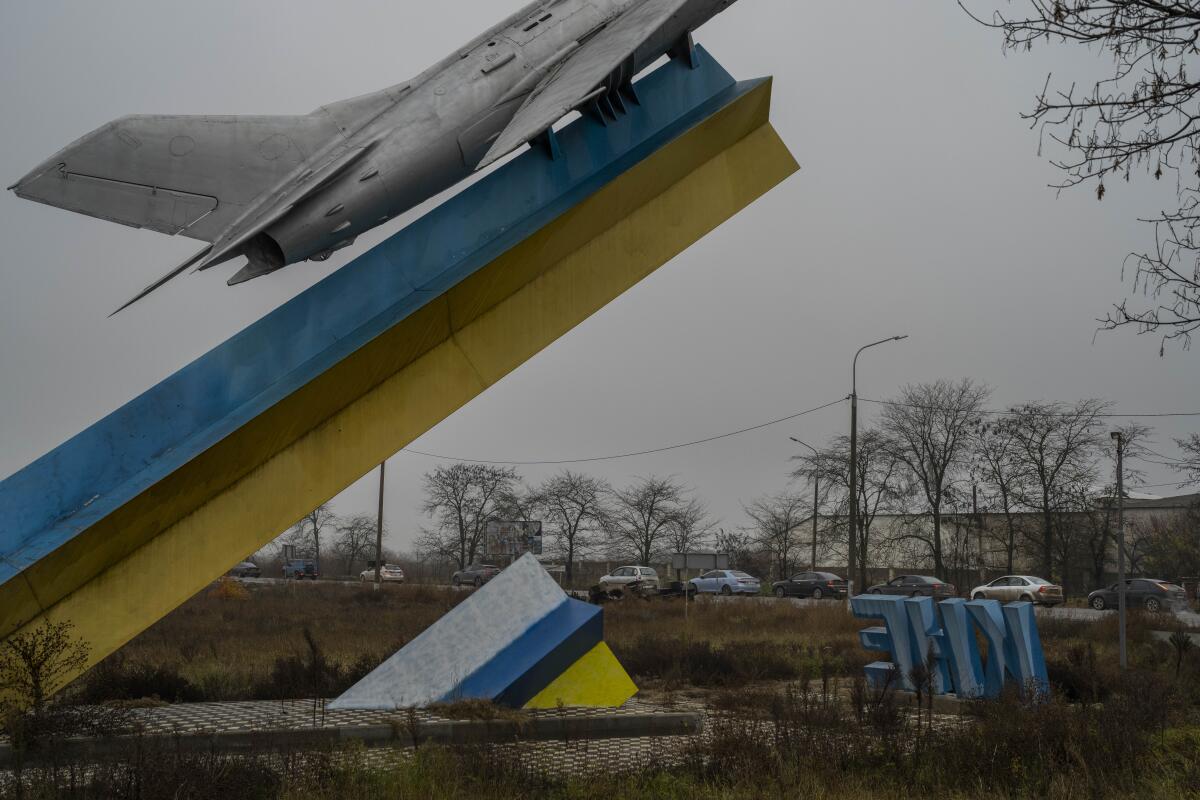
KHERSON, Ukraine — Shelling by Russian forces struck several areas in eastern and southern Ukraine on Sunday as utility crews continued a scramble to restore power, water and heating following widespread strikes in recent weeks, officials said.
With persistent snowfall blanketing the capital, Kyiv, analysts predicted that wintry weather — bringing with it frozen terrain and grueling fighting conditions — could have an increasing impact on the trajectory of the war, which began when Russian forces invaded Ukraine more than nine months ago.
Both sides were already bogged down by heavy rain and muddy battlefield conditions, experts said.
After a blistering barrage of Russian artillery strikes on at least two occasions over the last two weeks, infrastructure teams in Ukraine were fanning out in around-the-clock deployments to restore key basic services as many Ukrainians dealt with having only a few hours of electricity per day — if at all.
Ukrenergo, the state power grid operator, said Sunday that electricity producers were now supplying about 80% of demand. That’s an improvement from Saturday’s 75%, the company says.
The deprivations have revived jousting between Ukraine’s president and Kyiv’s mayor. Mayor Vitali Klitschko on Sunday defended himself against allegations leveled by President Volodymyr Zelensky that too many Kyiv residents were still without power and that insufficient centers had been set up for them to stock up on food, water, battery power and other essentials.
In Kyiv, the mayor says 70% of the Ukrainian capital has been left without power a day after Russia unleashed yet another devastating missile barrage.
Klitschko wrote on Telegram that hundreds of such centers are in operation, as well as hundreds of emergency generators, adding that “I do not want, especially in the current situation, to enter into political battles. It’s ridiculous.”
The president and the mayor have sporadically sparred since Zelensky took office in 2019. Zelensky has accused Klitschko and officials around him of corruption, while Klitschko contends the president’s office has put him under political pressure.
The Institute for the Study of War, a Washington-based think tank that has been closely monitoring developments in Ukraine, said reporting from both sides indicated that heavy rain and mud have had an effect on fighting, and freezing temperatures expected along the front lines in coming days could also play a role.
“It is unclear if either side is actively planning or preparing to resume major offensive or counteroffensive operations at that time, but the meteorological factors that have been hindering such operations will begin lifting,” it said in a note published Saturday.
The institute said Russian forces were digging in farther east of the city of Kherson, from which they were expelled by Ukrainian forces more than two weeks ago, and continued “routine artillery fire” across the Dnieper River.
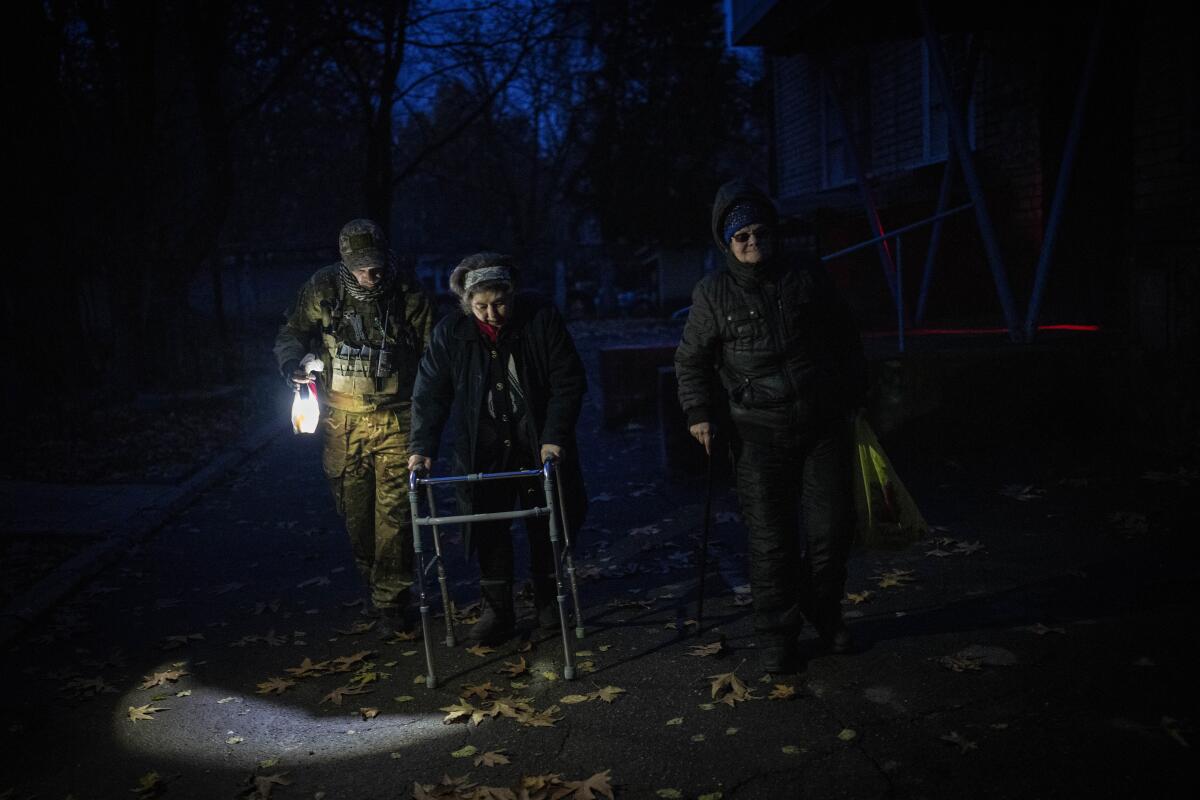
The think tank also cited reports that Russian forces were moving multiple rocket-launch and ground-to-air missile systems into positions closer to the city as part of a possible plan to step up “the tempo of rocket and anti-air missile strikes against ground targets north of the Dnieper River in the coming days.”
Areas of Ukraine once considered places of refuge are staggering under the weight of caring for displaced people and experiencing their own hardships.
The top U.N. official in Ukraine said civilians, many of whom lamented unlivable conditions and feared more strikes to come, continued to pour out of Kherson on Sunday.
“The level of destruction, the scope of the destruction, what’s required in the city and in the oblast — it’s massive,” said U.N. resident coordinator Denise Brown, referring to the region. U.N. teams were ferrying in supplies like food, water, shelter materials, medicines and blankets and mattresses, she said.
“Time is of the essence, of course, before it becomes an absolute catastrophe,” Brown told the Associated Press in Kherson.
Galina Lugova, head of the city’s military administration, said in an interview Sunday that evacuation trains had been lined up and bomb shelters set up in all city districts with stoves, beds, first-aid kits and fire extinguishers.
“Everything you need,” she said.
“We are preparing for a winter in difficult conditions, but we will do everything to make people safe,” Lugova said. Her biggest worry, she said, was “shelling that intensifies every day. Shelling, shelling and shelling again.”
On the roads out of the city, some residents felt they had no choice but to leave.
“The day before yesterday, artillery hit our house. Four flats burned down. Windows shattered,” said Vitaliy Nadochiy, driving out with a terrier on his lap and a Ukrainian flag dangling from a sun visor. “We can’t be there. There is no electricity, no water, heating. So we are leaving to go to my brother.”
More to Read
Sign up for Essential California
The most important California stories and recommendations in your inbox every morning.
You may occasionally receive promotional content from the Los Angeles Times.
